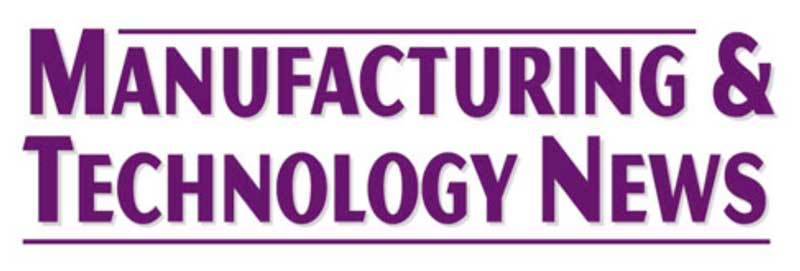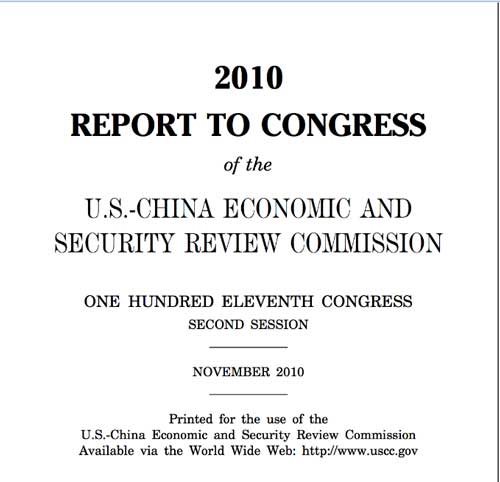Americans Grow Skittish In Business Dealings With China’s Big Telecom Equipment Company Huawei
By Vince Wade
From Manufacturing News (November 30, 2010, Volume 17, No. 19)
01/19/2011 – When Sprint recently decided to scrap plans to buy next-generation cellular network technology from China’s Huawei and ZTE — two major players in the global telecommunications business — it did so primarily because the agreement was strongly opposed by the Pentagon. The Chinese companies were the lowest bidders in the multi-billion dollar deal. It didn’t matter.
The Department of Defense had help in its campaign to stop the deal from the United States-China Economic and Security Commission (USCC), a bi-partisan congressional advisory panel on the security implications of trade with China.
The USCC recently released its annual report, which says China’s rise as a major telecommunications player raises new concerns and risks for U.S. national security.
Ever since Huawei tried to buy the computer networking company 3Com, the Chinese telecom has been on the U.S. national security radar screen. Huawei, ZTE and Datang, another Chinese telecommunications manufacturer, have been cited for close ties between the Chinese military and that nation’s major business enterprises in the last three annual DOD reports to Congress on the state of China’s military.
Two USCC commissioners co-authored an op-ed piece in October in the Wall Street Journal that was highly critical of Sprint’s plan to buy telecom gear from Huawei, the world’s second largest telecommunications equipment provider.
Michael Wessel and Larry Wortzel noted Ren Zhengfei the founder and president of Huawei is a retired general and former director of the Chinese People’s Liberation Army (PLA) military telecommunications research arm. That, they said, makes the Sprint-Huawei deal “very different” from other multinational business agreements.
Political opposition bubbled up from three U.S. senators and a representative demanding answers in view of Huawei’s enduring reputation as an espionage front for the PLA. Huawei has denied the accusation, to no avail.
The lawmakers signaled political trouble for the Sprint-Huawei deal with a publicly-released letter to the FCC asking for the agency’s “plans for ensuring the security of our nation’s telecommunications networks” in light of the deal, which also involved the purchase of equipment from ZTE, another suspected Chinese espionage front.
Senators John Kyl of Arizona, Susan Collins of Maine and Representative Sue Myrick of North Carolina, the signatories to the inquiry, are all Republicans. They were joined by Senator Joe Lieberman, an independent.
Huawei hoped to provide equipment for the fourth-generation (4G) nationwide cellular and wireless network. U.S. officials feared the Huawei equipment might be embedded with secret eavesdropping technology that would enable Chinese intelligence agencies to use U.S. cell phone and microwave towers as listening posts. Huawei was gearing up for a high-powered lobbying campaign when Sprint pulled the plug.
There are good reasons to suspect Huawei might pose a threat to U.S. national security. Company founder Ren Zhengfe distinguished himself as a technologist at a PLA telecommunications research institute. The company he founded in 1988 after he left the military had humble beginnings, but when Chinese policymakers decided telecommunications would be a national strategic priority, torrents of money suddenly flowed to Ren’s little enterprise. Ren recognized opportunity when he saw it and the PLA benefited significantly as Huawei grew stronger. Today it’s the world’s second-largest telecommunications company. Sweden’s Ericsson ranks first.
Huawei, based in Shenzhen, China, regularly and routinely denies espionage ties to the People’s Liberation Army, but its track record doesn’t help allay concerns.
In 2001, during the “no-fly zone” sanctions against Iraq, Huawei sold fiber optic equipment to Saddam Hussein to help strengthen command and control capabilities for Iraqi air defenses. That same year India’s intelligence service charged 185 Huawei technicians in Bangalore with providing telecom surveillance equipment to the Taliban in Afghanistan.
More recently, Huawei has been a key provider of advanced telecommunications in Iran, including military networking equipment for that country’s Revolutionary Guard. In 2009, Huawei set up a “unified” research lab with the Sharif University of Technology in Teheran. A press release from China’s embassy in Iran states: “Huawei will also provide training opportunities for universities and operators both in China and Iran.”
A 2003 weapons proliferation report by the Canadian Security and Intelligence Service cites Huawei as an example of a dual-use (commercial and military) technology vendor. The Canadian intelligence paper states: “A further level of complexity in their proliferation activity is that foreign firms seeking to do business with them may try to shield them from U.S. sanctions.”
Indeed, Sprint is not unique in its willingness to consider a business deal with a suspected Chinese espionage front company. Profits-before-patriotism is a chronic problem for U.S. national security watchdogs. When Huawei was providing technology for Iraq’s air defenses, the spotlight spilled over on Motorola.
Gary Milhollin, director of the Wisconsin Project on Nuclear Arms Control, testified in 2001 that while Huawei was beefing up Saddam Hussein’s air defenses, “Motorola had an export license application pending for permission to teach Huawei how to build high-speed switching and routing equipment — ideal for an air defense network.” Ironically, Motorola is now suing Huawei for intellectual property theft. In 2003, Cisco Systems sued Huawei for stealing computer code for the design of routers and switches. The suit was dropped when Huawei redesigned its equipment that bore a striking resemblance to the Cisco Systems gear.
The Clinton administration allowed Huawei to buy high-performance computers from IBM, Digital Equipment Corporation, Hewlett-Packard and Sun Microsystems.
Examples of U.S.-based companies seeking to cash in on the Huawei telecom juggernaut during the Bush administration include:
- Lucent Technologies (now Alcatel-Lucent), which set up a joint research lab with Huawei;
- AT&T which signed deals to “optimize” Huawei’s telecom gear;
- IBM, which has a long-standing partnership with the Chinese company. IBM and Huawei even partnered in 2007 on something they call the Integrated Financial Services (IFS) program aimed at funding industrial globalization.
Washington’s concern over potential Huawei security compromises can be particularly puzzling after looking at the partnership Huawei has with Symantec, the Internet security firm that makes the Norton line of anti-virus products.
The Huawei-Symantec product line includes security “solutions” for video surveillance, documents, virtual private networks, and protection against DDoS (distributed denial of service) hacker attacks. An online brochure from Huawei-Symantec notes the joint venture on Internet security technology has R&D Centers in Beijing, Shenzhen, Chengdu and Hangzhou in China, and in Silicon Valley in California. Huawei and other Chinese telecom companies suspected of ties to military intelligence are so busy cross-pollinating technology in the globalization free-for-all that it’s easy to see why many global telecom high rollers argue, in effect, that resistance is futile.



